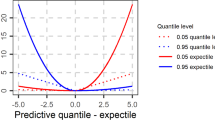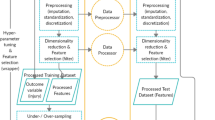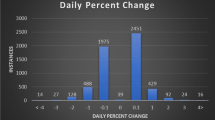Abstract
This paper proposes a fast learning method for fuzzy measure determination named fuzzy extreme learning machine (FELM). Moreover, we apply it to a special application domain, which is known as unit combination strategy evaluation in real time strategy (RTS) game. The contribution of this paper includes three aspects. First, we describe feature interaction among different unit types by fuzzy theory. Second, we develop a new set selection algorithm to represent the complex relation between input and hidden layers in extreme learning machine, in order to enable it to learn different fuzzy integrals. Finally, based on the set selection algorithm, we propose the FELM model for feature interaction description, which has an extremely fast learning speed. Experimental results on artificial benchmarks and real RTS game data show the feasibility and effectiveness of the proposed method in both accuracy and efficiency.





Similar content being viewed by others
References
Aha DW, Molineaux M, Ponsen M (2005) Learning to win: case-based plan selection in a real-time strategy game. In: Case-based reasoning research and development, vol 2005. Springer, Berlin, pp 5–20
Buro M (2003) ORTS: a hack-free RTS game environment. In: Computers and games. Springer, pp 280–291
Dereszynski EW, Hostetler J, Fern A, Dietterich TG, Hoang TT, Udarbe M (2011) Learning probabilistic behavior models in real-time strategy games. In: AIIDE
Hsieh JL, Sun CT (2008) Building a player strategy model by analyzing replays of real-time strategy games. Paper presented at the 2008 IEEE international joint conference on neural networks, Hong Kong, pp 3106–3111, June 2008
Huang GB, Wang DH, Lan Y (2011) Extreme learning machines: a survey. Int J Mach Learn Cybern 2(2):107–122
Huang GB, Zhu QY, Siew CK (2006) Extreme learning machine: theory and applications. Neurocomputing 70(1):489–501
Laird J, VanLent M (2001) Human-level AI’s killer application: interactive computer games. AI Mag 22:15
Li Y, Ng PH, Shiu SC (2013) Extreme learning machine for determining signed efficiency measure from data. Int J Uncert Fuzziness Knowl Based Syst 21:131–142
Li YJ, Ng HFP, Wang HB, Shiu CKS, Li Y (2011) Apply different fuzzy integrals in unit selection problem of real time strategy game. Paper presented at the 2011 IEEE international conference on fuzzy systems, China, Taipei, pp 170–177, June 2011
Narukawa Y (2007) Modeling decisions: information fusion and aggregation operators. Springer, Berlin
Schadd F, Bakkes S, Spronck P (2007) Opponent modeling in real-time strategy games. In: GAMEON. vol. 2007, pp 61–70
Sugeno M (1974) Theory of fuzzy integrals and its applications. Ph.D. thesis, Tokyo Institute of Technology
Synnaeve G, Bessiere P (2011) A bayesian model for opening prediction in rts games with application to starcraft. Paper presented at IEEE conference on computational intelligence and games, Seoul, pp 281–288, Sept 2011
Synnaeve G, Bessiere P et al (2012) A dataset for starcraft ai & an example of armies clustering. In: AIIDE workshop on AI in adversarial realtime games, vol 2012
Wang J, Wang ZJ (1997) Using neural networks to determine sugeno measures by statistics. Neural Netw 10(1):183–195
Wang Z, Yang R, Lee KH, Leung KS (2008) The choquet integral with respect to fuzzy-valued signed efficiency measures. Paper presented at the 2008 IEEE international conference on fuzzy systems, Hong Kong, pp 2143–2148, June 2008
Wang XZ, He YL, Dong LC, Zhao HY (2011) Particle swarm optimization for determining fuzzy measures from data. Inf Sci 181(19):4230–4252
Weber BG, Mateas M (2009) A data mining approach to strategy prediction. Paper presented at IEEE symposium on computational intelligence and games, Milano, pp 140–147, Sept 2009
Young J, Hawes N (2012) Evolutionary learning of goal priorities in a real-time strategy game. In: AIIDE
Acknowledgments
This research project is supported by the HK Polytechnic University Grant 4-ZZAH and the National Natural Science Foundation of China under Grant 61402460.
Author information
Authors and Affiliations
Corresponding author
Rights and permissions
About this article
Cite this article
Li, Y., Ng, P.H.F. & Shiu, S.C.K. A fast evaluation method for RTS game strategy using fuzzy extreme learning machine. Nat Comput 15, 435–447 (2016). https://doi.org/10.1007/s11047-015-9484-7
Published:
Issue Date:
DOI: https://doi.org/10.1007/s11047-015-9484-7




